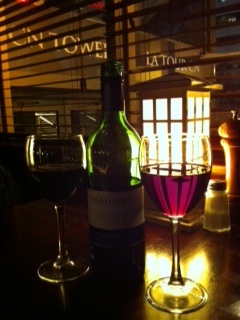Wine tasting is bullshit? Here's why not.

Recently, Robert T. Gonzalez’s blog, IO9, part provocation, part refutation, and eminently readable for the layperson, providing insight and opinion on a whole spectrum of subjects unceremoniously burst its way into the guild of oenophiles with the uncomplimentary title “Wine tasting is bullshit. Here’s why.”
But dear SukasaStyle readers, surely this isn’t something that is either notable or newsworthy. People taste wine because they can; comparing and contrasting is a part of the human condition. We do it because it is there. Whenever we assign a score, and ordinality on anything – whether it is wine, figure skating, or American Idol – it is 99% subjectivity enveloped with a veneer of objectivity.
To the points raised in IO9:
Exhibit A: Wine experts contradict themselves. Constantly.
Yes, they can and do but who doesn’t? An examiner marking an essay in a good mood is not going to assign the same score to the same paper when she is in a foul mood. We follow experts because we identify with them. Some of them may hold the coveted “Master of Wine” designation, others may have been full time sommeliers, but ultimately we follow a so-called expert because we want an opinion. It doesn’t matter whether it is regarding a Premier Cru 2005 Bordeaux from Robert M. Parker’s Wine Advocates, or a best buy pick from Gord Stimmell, and good wine in the company of great friends on a special occasion will be more memorable than the same wine in the company of those you do not care about.
 |
| Handmade Wedding bag by SukasaStyle |
Exhibit B: Expert wine critics can't distinguish between red and white wines
Frédéric Brochet’s research (see here), which IO9 cites, delves into the psychological when dissecting wine tasting:
- Textual analysis, which uses a statistical treatment of subjects' verbalisations.
- Behaviour analysis, which by observing subjects, infers underlying cognitive mechanisms.- Textual analysis, which uses a statistical treatment of subjects' verbalisations.
- Cerebral function imaging which permits, as directly as possible, access to cortical activation, through visualising the brain in action.
This is a modern dressing up of Plato’s Theory of Forms; what is real, what is perceived and is perception reality?
Exhibit C: We taste with our eyes, not our mouths
Of course we do, that’s why we look at colour and determine if the wine has “legs”; that’s why we want different glasses for different wines today when 40 years ago there was a a basic claret glass; that’s why the act of removing a cork is memorable while the act of removing a screw top is forgettable.
Exhibit D: Wine critics know wine reviews are bullshit
Of course we do, that’s why we look at colour and determine if the wine has “legs”; that’s why we want different glasses for different wines today when 40 years ago there was a a basic claret glass; that’s why the act of removing a cork is memorable while the act of removing a screw top is forgettable.
Exhibit D: Wine critics know wine reviews are bullshit
Not necessarily. Yes, when there is a struggle to evoke differentiation between a tried palette but definitely not when wine is being tasted with what matters –food in the company of close family and friends — for there you can discern what tastes better with your Maritime lobster: that Puligny-Montrachet chardonnay or the same grape from Hidden Bench in Niagara?
Exhibits E – ZZZ: Countless other studies
Careful with the assertion. Noted economist Sanjay Reddy, in his research, shows that “facts” and “values” are entangled; we can properly measure once we determine in a conscious and deliberate fashion how our own values enter into analysis.
To our SukasStyle friends, we will continue to give our opinions about wine, food, and lifestyle, with the full knowledge that more expensive may not be better, a higher score may not translate to tastier, and a coveted region may not produce better wines than a fledgling one.
But we will continue to be objective in our assessments while understanding fully that wine tasting, like many endeavours, is subjective. Enjoy your wine whether it is a house brand to enjoy during the week or a coveted bottle for a special occasion and don’t forget to pay us a visit.
But we will continue to be objective in our assessments while understanding fully that wine tasting, like many endeavours, is subjective. Enjoy your wine whether it is a house brand to enjoy during the week or a coveted bottle for a special occasion and don’t forget to pay us a visit.


Comments
Post a Comment